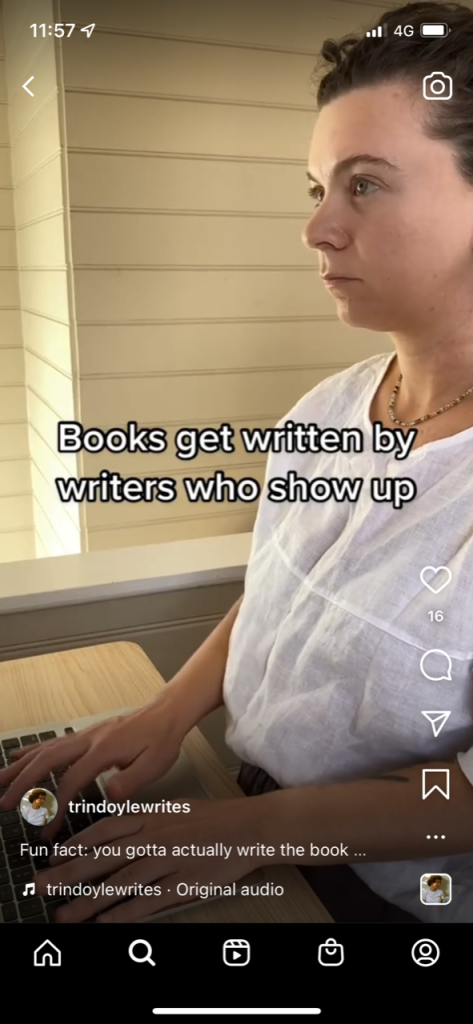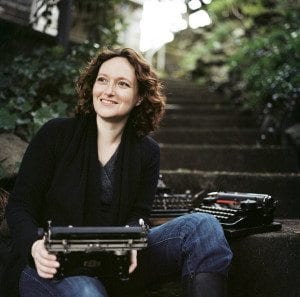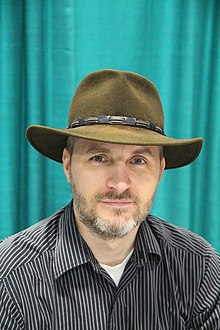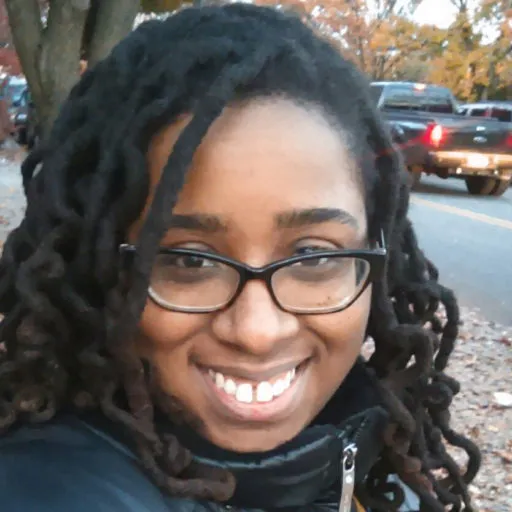Stagnation – and an epiphany
As mentioned in my last post, I’ve been working on a new fantasy series. What I didn’t mention was that, for the first time in my writing career (published and unpublished), I’ve had moments of genuine stagnation with it.
That’s not to say I haven’t hit brick walls before – I have. Many times. But in the past I’ve written my way through them. This time, though, it’s felt different.
For a while, I thought it was because I have a day job that stretches my brain, plus a busy lifestyle – but I’ve never been a full-time novelist and I’ve always managed in the past. Then I wondered if it was because I don’t have a deadline.
Reality bites
Last week, I discovered it was because there’s a hole in what I’ve been working towards with the new trilogy.
I hadn’t joined enough dots in my plotting for the third and final book in the series, which was causing me challenges while drafting the second. It was one of those ‘aha’ moments that made me wonder how I ever thought the series could work without this particular plot thread being strengthened.
In truth, I’ve had a similar process for all five of my published novels, so it shouldn’t come as a surprise. Apparently that’s my process!
This latest epiphany, though, didn’t fall out of the sky into my lap. I’ve had to dig for it. And, along the way, I’ve rediscovered the value and reward of the collective wisdom of the writing community. I’ve also discovered that having software that suits your writing needs is pretty handy.
For those of you who are writers (or just interested in the process), here are two resources that are helping me stay connected with, and dig deeper into, my writing.
Podcast: Writing Excuses
This US-based podcast has been going for more than a decade, and I’m embarrassed to say I only discovered it last year. I’m now officially obsessed.
It covers topics that, at first glance, I often think, ‘I’m okay with that stuff’. And then I listen to the hosts discuss their own experiences, challenges and solutions, which prompts me to think about those things in the context of my own work.
Without fail, every episode sparks an idea (and, on good days, a full-blown epiphany). It might be something small, or it might be a new way to tackle an issue in my current project. Or, better yet, it helps me identify an issue I didn’t realise I had.
And it’s about speculative fiction!
There’s a focus on fantasy and sci fi, with discussions including TV, film and table-top game references, as well as prose. Right up my alley. I like that each episode is around 15 minutes long, and is well structured.
On the days I drive into work for my day job, it’s a two-hour round trip, so I’ve been binging my way through current and past series. The challenge, of course, is holding new plot/character ideas in my head while driving, given Siri refuses to take a voice memo without me opening the app.
If you’re a writer, especially a YA spec fic writer, I cannot recommend this podcast enough if you’ve not discovered it (which you probably have).
The hosts
The podcast is hosted by Mary Robinette Kowal, Dan Wells and Howard Taylor, with new additions in 2023: DongWon Song and Erin Roberts. (Brandan Sanderson is a founding host and this year has officially stepped aside to concentrate on other commitments.) The photos below link to their bio info.
Podcast: I listen on Apple Podcast, but no doubt you can find this on your favourite podcast platform. The podcast on Apple is referred to as ‘Season 14’ but it’s up to date, including the first episode of 2023’s Season 18.
Writing platform: Scrivener
Yes, I know, I know: writers have been using this tool for YEARS. I remember looking at it when I was working on The Undercurrent and thinking I was doing just fine old-school-style, with my single Word doc file, notebooks, scraps of paper and endless supporting docs and web links.
Fast-forward a few years and my writing practice has become wedged between work at the day job, my consultancy side-hustle and the ride-on mower. The piecemeal nature of my writing sessions means it’s harder than ever for me to keep track of characters, plot and world building in a complex story.
After hearing Scrivener mentioned often in the above podcast, I looked it up and decided to give it a go. I signed on for the free 30-day trial and less than 48 hours later I bought my full-price subscription. Honestly, it’s been like shifting from a typewriter to Word (yes, I’m old enough to remember what that was like). It has, quite literally, changed my writing life.
I only mention it here because it’s helped me, and I can’t stop banging on about it. Again, if you’re a writer, you’re probably all over this already.

And a bit of inspiration…
Whenever I need to remind myself why I love writing, especially when it gets hard, I usually reach for my battered copy of Bird by Bird by Anne Lamott, beloved by writers everywhere.
Of late, I’ve also been checking out posts by @TrinDoyleWrites, an Instagram account from Australian YA writer, Trinity Doyle, author of the fabulous Pieces of Sky.
Trin’s posts are all about ‘writing tips, sustainable creativity and book whispering’. She’s fun, honest, and prepared to be vulnerable to stay authentic.
Much like Bird by Bird, Trin’s tips remind me that the creative process is frequently hard, occasionally mystical and always different for everyone – whether you’re published or not.
This boy and the view helps, too.:)

Thank you
Finishing The Rephaim series has left me feeling a little reflective and contemplative, so please indulge me for this post. There are a lot of people I want to thank for being with me on The Rephaim journey. I think I did a reasonable job in my acknowledgements at the end of Burn, so I thought I would re-post it here.
ACKNOWLEDGMENTS
Five years ago, I was frustrated and disappointed over yet another writing rejection – the  latest addition to a fat folder. To cheer myself up I started working on something for fun. That scene turned into the beginnings of Shadows and an outline for the four-book Rephaim series. Less than a year later, my agent Lyn Tranter pitched the series to Mandy Brett and Alison Arnold at Text Publishing. They liked it and I was offered a contract. After all those years of writing and rejection, the thing I had wanted for so long happened ‘just like that’.
latest addition to a fat folder. To cheer myself up I started working on something for fun. That scene turned into the beginnings of Shadows and an outline for the four-book Rephaim series. Less than a year later, my agent Lyn Tranter pitched the series to Mandy Brett and Alison Arnold at Text Publishing. They liked it and I was offered a contract. After all those years of writing and rejection, the thing I had wanted for so long happened ‘just like that’.
 Since then, the series has been published in the United Kingdom, North America and Turkey. I’ve been a guest at writers’ festivals, a writer-in-residence at high schools, participated in blog tours, met lots of wonderful readers online and at events, and read countless reviews of my work (good, bad and otherwise).
Since then, the series has been published in the United Kingdom, North America and Turkey. I’ve been a guest at writers’ festivals, a writer-in-residence at high schools, participated in blog tours, met lots of wonderful readers online and at events, and read countless reviews of my work (good, bad and otherwise).
I’ve rubbed shoulders with many of my favourite writers and met others who have since joined that list. I’ve chatted and shared book recommendations with a great bunch of dedicated bloggers and reviewers who do what they do purely because they love to read. The young adult writing community in Australia is quite possibly the most welcoming, supportive and friendly writing sector in the world today, and that’s been one of the greatest discoveries of all.
 I still have a day job. Few people tell you how tough it is to earn a living as a writer. I’m just grateful to be in print, and especially grateful for publishers like Text Publishing who are still willing to take risks. There are plenty of writers out there who are where I was five years ago, so I take nothing for granted.
I still have a day job. Few people tell you how tough it is to earn a living as a writer. I’m just grateful to be in print, and especially grateful for publishers like Text Publishing who are still willing to take risks. There are plenty of writers out there who are where I was five years ago, so I take nothing for granted.
This is the fourth and last book in the Rephaim series, and there are plenty of people I need to thank.
Text Publishing: my editor Mandy Brett, for caring about a story filled with angels and  demons. I’m well aware of how lucky I am to be able to work with you. And the entire team at Text, especially those I’ve worked with the closest: Anne Beilby, Alice Cottrell, Steph Speight, Alaina Gougoulis and Shalini Kunahlan.
demons. I’m well aware of how lucky I am to be able to work with you. And the entire team at Text, especially those I’ve worked with the closest: Anne Beilby, Alice Cottrell, Steph Speight, Alaina Gougoulis and Shalini Kunahlan.
Orion/Indigo Books: my editor Jenny Glencross and senior publicity manager Nina Douglas.
Tundra Books/Random House Canada: Publisher Alison Morgan, Editorial Director Tara Walker and Publicity Manager Pamela Osti, as well as Val Capuani. Special thanks to Publishing Coordinator Sylvia Chan, for always going above and beyond.
Alison Arnold, for being there from the start of this series and whose influence still guides my writing (and inspires me to try to write beautiful sentences).
Rebecca Cram (Place), for nearly three decades of friendship and encouragement – and providing helpful feedback on an early draft Burn.
Michelle R eid, fellow YA book nerd, for providing outstanding attention to detail at draft stage and again in the home stretch. (Thanks too for the ‘arse’ conversation!)
eid, fellow YA book nerd, for providing outstanding attention to detail at draft stage and again in the home stretch. (Thanks too for the ‘arse’ conversation!)
Tony Minerds: my brother who can spot a typo at fifty paces. This time around he got a chance to find them before we went to print. Thanks bro.
Vikki Wakefield, a gifted writer who I’m proud to call friend, for feedback and candid conversations that help me feel like I almost know what I’m doing.
Marianne de Pierres – a multi-talented writer, friend and mentor – for invaluable advice and much appreciated support.
My family and friends, many of who had never read anything even remotely resembling urban/contemporary fantasy before this series came along, for taking the time to read every book and make appropriate noises of enthu- siasm. You guys rock.
urban/contemporary fantasy before this series came along, for taking the time to read every book and make appropriate noises of enthu- siasm. You guys rock.
My amazing friend and business partner, Heather Scott, for her friendship and unwavering belief in me.
Mum and Dad, for their overwhelming love and support in all aspects of my life.
Murray, for knowing me better than anyone else on the planet, and for still being beside me twenty years on. And last, but most certainly not least, all of you – readers, bloggers, reviewers, booksellers and librarians – who have picked up the Rephaim series. There is no writing career without you guys. Thanks for being a part of this adventure.
I know the Rephaim series isn’t going to change the world, but I’ve loved writing this story and these characters—and they’ve certainly brought an amazing new dimension to my world. For that, I will always be grateful.
Authors who review
I’m a published author. I’m also an avid reader. So is it okay for me to talk online about the books I enjoy?
Long before I was published, I was a book blogger. I wasn’t on anyone’s mailing list and I didn’t receive ARCs, I just read widely and wanted to chat about the books I loved.
I started my first blog in 2007, called Great Stories. After a few years of building up a reasonable following of like-minded readers, I realised my reading choices were too eclectic for a single blog, so I created a second one dedicated to fantasy, urban fantasy, paranormal and zombie stories, called Other Worlds (mostly YA, but not exclusively).
Even back in those days, I confined my posts to books I enjoyed. Probably because I bought most of what I read and reviewed, and – with my own writing going on in the background – I didn’t have the time to invest in books that didn’t appeal to me.
And then in 2011, after many years of writing and submitting my own work to publishers, I was signed by Text Publishing in Australia (and then later by Indigo/Orion in the UK and Tundra Books in North America). So I started a third blog focused on my own writing (the one you’re reading now).
Within a few months of that first contract, I wound down the other two blogs (due to time commitments). But I still kept track of what I was reading on Goodreads. I had never given starred ratings on my own blogs, but picked up the habit on Goodreads, given it’s a convention of the site.
When Shadows debuted in Australia in 2012, I became a Goodreads author, which gave me a completely different perspective on the site.
Now, with a click of a button, I can see what everyone is saying about my work. Most reviews of my books are thoughtful, encouraging and often grin-inspiring. Others rip my heart out and leave it crushed on the side of the road. The latter are never easy to read, but I respect everyone’s right to express their opinions – after all, I don’t have to read them.
But experiencing Goodreads as an author made me realise that everything I write about other books can be read by their authors. A no-brainer, yes, but I’d never really sat down and thought that through. My reviews were always for my fellow readers: “Here I loved this, you might too”.
I started to wonder what authors thought about having other authors rate and review their books. Granted, my ratings and comments were overwhelmingly positive, but still….So for a while, I didn’t know how to ‘be’ on Goodreads. I still wanted to keep track of what I’d read and what I wanted to read. (My Goodreads TBR collection is always my go-to list when I can’t decide what to pick up next.)
Then I changed tack. I stopped reviewing all together. But I missed it. I actually enjoy writing about books I’ve loved, especially when it leads to conversations with other bloggers/readers about those books.
So I decided to write comments about books I’d read and not give a rating. But that felt like a cop-out. And I know how lovely it is to get a strong star rating on Goodreads.
As of late, I’m back to leaving ratings and (mostly brief) comments because it feels more meaningful to me as a reader. As usual, I only post on Goodreads about books I’ve really enjoyed, so they’ll generally all be novels I feel deserve five stars. And again, this is because I’m only reading books I seriously expect to love. So my Goodreads posts are definitely recommendations. They are not intended to be a critical analysis. (By the way, I also include my ever-growing favourite reads list here on my site.)
I know there are divided opinions about how authors should behave as readers, particularly online. I’m trying to find a comfortable middle ground where I tread lightly in both roles, but still offer something meaningful for my own readers, and readers who share my tastes in books.
I’m interested to hear thoughts from book bloggers (and authors) on the topic.
(Side note: I wrote a post on Life of Pi – particularly focused on the island scene – on Great Stories back in 2008 that, for a long time, had the number one Google ranking for ‘Life of Pi explained’. It still gets hundreds of hits every week and still attracts comments. I’m actually kind of proud of that. You can find it here.)






